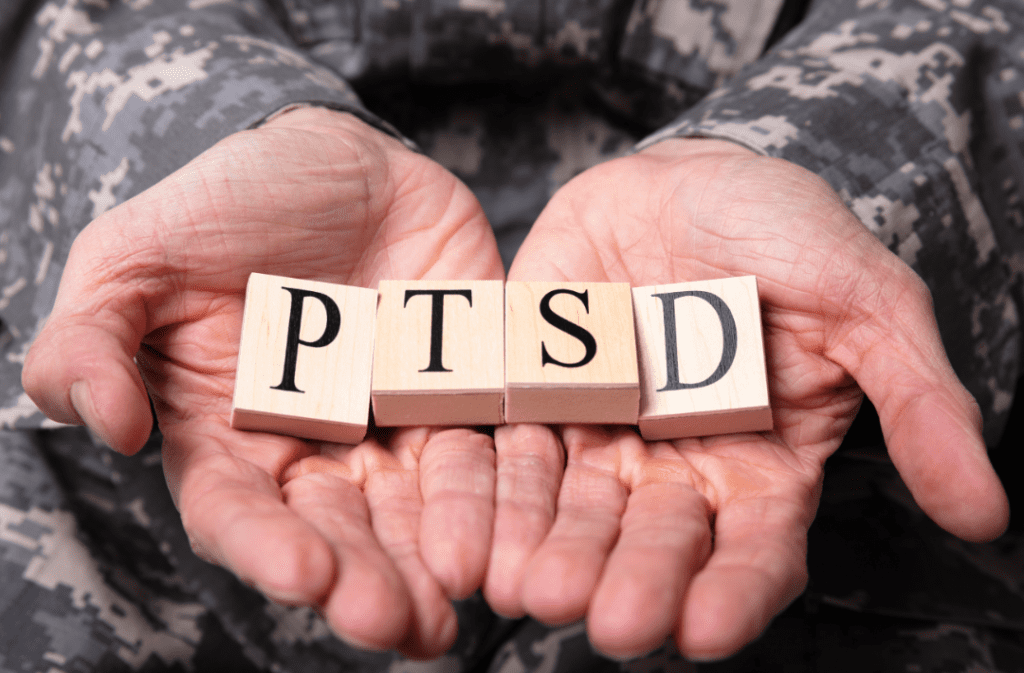Student Healthcare Programs- Post Traumatic Stress Disorder
Post Traumatic Stress Disorder (PTSD) is a type of mental disease that can occur after traumatic happenings. Things for example might be that involved-ish natural disasters for instance hurricanes or typhoons that produce flooding,serious accidents, or even combats.?But by no means does everyone touched by trauma develop PTSD. For those who do, it can disrupt life work and enjoyment. Student healthcare programs and student healthcare services are crucial for those with Post Traumatic Stress Disorder As there is no known cure for PTSD, the best approach to treatment focuses on relieving symptoms and helping sufferers adapt better to what they have experienced.

Causes of PTSD
Someone could have been in military combat, been physically or sexually assaulted, witnessed violence, or been in an accident such car crash: natural disasters! In addition there’s also childhood neglect or abuse Or if a loved one dies suddenly. PTSD has also been associated with Student healthcare programs. As a result, student insurance policies are being designed to meet the physical and mental health needs of students. They are providing an emotional support to conditions like P.T.S.D.
Understanding
Someone could have been in military combat, been physically or sexually assaulted, witnessed violence, or been in an accident such car crash: natural disasters! In addition there’s also childhood neglect or abuse Or if a loved one dies suddenly. PTSD has also been associated withStudent healthcare programs. As a result,student healthcare company are being designed to meet the physical and mental health needs of students. They are providing an emotional support to conditions like P.T.S.D.

Types
Student healthcare services consist of a variety of resources which include confidential counselling, health education, health insurance, preventive care and emergency services. These services are given by school healthcare services and are focused on the special needs of students, among which are those suffering from PTSD.
- Health Education: Through the provision of these forms of information and this infrastructure, mental health, stress management, healthy lifestyle choices, and substance abuse prevention will be in attendance.
- Health Insurance: Eliminating financial impairment posed by the high cost of health insurance by encouraging the availability of affordable health care plans that medical and mental health services.
- Preventive Care: Provide for regular doctor visits, vaccinations, screenings, and wellness programs as the best approach to fighting illnesses and maintain general health.
- Emergency Services: Providing immediate access tu the medical and mental health care that is required when necessary.
How PTSD has made a difference in the students' lives.
PTSD can pose a significant obstacle to a student’s academic progress, social life, and mental health. school healthcare services can help address these issues and provide the support needed for stuents to succeed acadically.
PTSD in Students is a Problem
Academic Difficulties: It is harder to focus, remember things, and successful study because of intrusive thoughts and emotional distress.
Social Isolation: No social engagements or problems of relationships formation and maintenance caused by the anxiety or triggers concerned.
Emotional Instability: Emotional instability, irritability, and aggressiveness is evidenced by their negative impact on how they relate with others and their regulative behavior.

Role Of Student Healthcare Companies
The student healthcare companies as a key segment in the fight to mitigate the spectral of mental illnesses like PTSD among students. The emphasis is on these organizations as holistic and student-centered.
Primary Services Offered by Student Healthcare company
On-campus student healthcare companies have options for students struggling with PTSD in order to enable that student healthcare Services are comprehensive and reach students from different walks of life. These include:
Counseling and Therapy: Access to counselors or therapists who are certified as trauma-focused therapists, and School healthcare services is one of the strong pillars.
Medication Management: Collaboration with healthcare providers for the provision of the right medication for symptom management, an indispensable provision towards proper pain management. student healthcare company.
Educational Workshops: Offering stress management, coping skills and PTSD awareness workshops, and some outreaches by the Student healthcare programs
24/7 Helplines: Providing confidential hotlines or crisis assistance for instantaneous crisis resolution via student health care, a necessary service in this.
Designing PTSD Awareness and Support:The efforts to boost students’ understanding of PTSD and provide support involve inspiration presenting information and reducing stigma through student healthcare Services

Education and Training Initiatives
Workshops and Seminars:performing awareness sessions with the students, faculty and staff holds a primary role in the promotion of mental health on campus, School healthcare services.
Training for Staff: Developing an education program targeted at the campus personnel that can recognize and respond to indications of PTSD is a step in the right direction if the school health programs are in support of this.
Peer Education Programs: Empower the student leaders appointment as peer educators who foster inter-student communication and provide support to their peers also provided by student healthcare companies.
The impact of the healthcare programs
Student healthcare programs conduct various assessments to measure the effectiveness of mental health services:Student healthcare programs conduct various assessments to measure the effectiveness of mental health services:
Outcome Surveys: Collecting feedback from students who already use mental health services to assess the level of their satisfaction which will further allow to create an action plan and reveal the areas where further development might be required.
Data Analysis: Quantitative data is the main tool of collecting the evidence of the impact of services and routine practice in implementing student healthcare Services
Qualitative Research: Engaging in one-on-one conversations or focus groups with students is a useful approach to obtain perspectives that showcase the advantages and barriers to mental health programs.

Long-Term Benefits for Students
Realizing the long term value of a mental health program is fundamental for emphasizing continuity and for establishment of commitment to invest resources into student health services.
Academic Success: The success rate in terms of the academic progress among students who went through mental health support would also be noted.
Personal Growth: Unfortunately, some students have mental health difficulties which may be bad for their personal development, an important component that should be examined in student health.
Community Impact: Exploring the big picture implication of how mental health programs have effect on the culture of campus, there will be a purpose of the student health companies.

The future of student counseling and PTSD
relies on a comprehensive approach that includes prevention, education, and treatment.In the light of the growing body of knowledge about mental health, the future of student healthcare Services configures into a brighter picture – since it expects substantial accomplishments in aid students suffering from PTSD.
Trends and Advancements in Mental Health Support
Students health programs have advanced nowadays to include the technology and tailor made treatment plan combinations that characterize modern Student healthcare programs.Advocacy for Policy Changes: Amplified funding and, policies, made the first priority of mental health support and awareness campaigns in schools and, students healthcare enterprises, is what is very important.
Conclusion
In conclusion, the student healthcare Services centers and school health centers offer contribute significantly to the students struggling with PTSD and attention to the holistic well-being of all students. Student healthcare programs are essential for:Student healthcare programs are essential for:
Early Intervention: Providing the appropriate student healthcare Services to timely recognize and treat the symptoms of PTSD in order to hinder the adverse impacts of the disease on the academic performance and the psychological development of the students.
Providing Accessible Resources: They want to ensure that the precise and specialized mental health resources that they provide are available to the students they are offering the services to.
These projects give the student the necessary support needed to address their educational challenges and at that move forward with their career goals despite the trauma of PTSD. The significance of the Student healthcare programs and student healthcare companies in the well-being and success of students cannot be denied. They enable students to realize their potentials and become brilliant members of the society.
